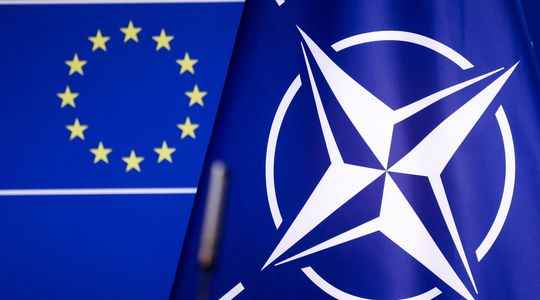If you ask a Finn if he thinks he can count on the help of his Swedish neighbors in the event of a conflict with the Russian ogre, he will answer you: “We have no doubt about Sweden’s determination to fight on foot on foot against Russia…” Then he will add with a smile: “… to the last Finn”.
At a time when Sweden and Finland are getting closer to NATO, this fashionable joke in Helsinki reminds us that these two countries, seemingly so similar, have a very different relationship to neutrality.
The price of independence
In Finland, this was dictated by geopolitical imperatives. Coming out of World War II and throughout the Cold War, Finnish leaders knew the price to pay to maintain their independence. Faced with the Soviet neighbour, whom they had fought fiercely during the Winter War (1939-1940), playing the role of intermediary between West and East was the only way to preserve peace. Nevertheless, this conditioned neutrality did not prevent Finnish democracy from developing its armed forces and, after the fall of the Wall, from getting closer to NATO.
Today, this pragmatism leads the Finns to consider that, faced with a vengeful Kremlin driven by less and less rational impulses, neutrality is no longer their best tool of protection. For Helsinki, which shares 1,340 kilometers of border with Russia, Article 5 of the North Atlantic Treaty is now the only guarantee of credible security.
Swedish opinion supports membership
Conversely, there is an almost ideological dimension in Swedish neutrality. It is the instrument that has allowed Sweden to take no part in any conflict since the end of the Napoleonic wars. But the Swedes are also deeply attached to neutrality because of the image it sends back to them of themselves. By brandishing neutrality as the keystone of its diplomacy, Stockholm sees itself and wants to be seen as a “moral superpower”. By standing above the geopolitical fray, Swedish diplomacy has been able to play a unique mediating role on the international stage, whether in matters of arms control or in numerous peace negotiations.
But the war in Ukraine has reshuffled the cards of the game. If, with the approach of the general elections in September, the Swedish Social Democrats, who have made neutrality the historical pillar of their foreign policy, remain divided, the whole opposition parties and nearly 60% of public opinion support joining NATO. With a step that is certainly less resolute than their Finnish neighbours, the Swedes are therefore also preparing to ask, before the NATO summit to be held in June in Madrid, to join the Atlantic Alliance.
From this evolution, which will permanently and profoundly transform the European security architecture, we must draw several lessons.
NATO stronger
The first is that almost all European countries, including those who cherished their neutrality, now consider NATO membership to be essential in the face of the growing threats hanging over our continent. By contrast, one cannot but be struck by the French debate, in which the far right calls for the withdrawal of NATO’s integrated command, while Jean-Luc Mélenchon calls for nothing less than the pure and simple of the Atlantic Alliance.
It should then be emphasized that Finland and Sweden, which have very well-trained and equipped armed forces, but also high-quality military intelligence, will considerably strengthen the Atlantic Alliance, particularly in the Baltic Sea, but also in Arctic where part of the future geopolitical confrontation with Moscow and Beijing will be played out.
Finally, contrary to what is sometimes implied, the accession of Sweden and Finland to NATO will not be to the detriment of European defence. By joining the Atlantic Alliance, these two countries will increase the weight of Europe and will commit to strengthening their military capabilities. At a time when the European Union is suffering from a considerable deficit in terms of defense expenditure, this is an essential development so that it can assert itself as a sovereign and autonomous geopolitical actor.
Jeremiah Gallon is managing director for Europe of the geopolitical consulting firm McLarty Associates. He teaches international issues at Sciences Po and has just published Henry Kissinger. The European (Gallimard).
